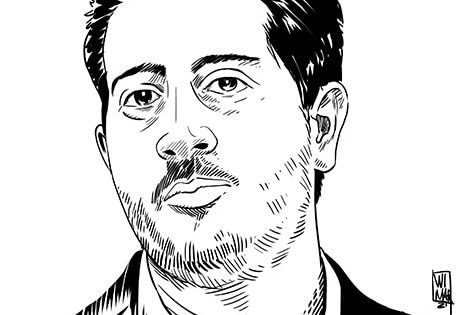(RSF/IFEX) – On 2 August 2002, RSF called for the immediate and unconditional release of Ángel Pablo Polanco, a journalist for the Servicio Noticuba independent press agency, who was arrested on 30 July. “This arrest demonstrates that the independent press is one of the favorite targets of repression against the opposition,” RSF Secretary-General Robert Ménard […]
(RSF/IFEX) – On 2 August 2002, RSF called for the immediate and unconditional release of Ángel Pablo Polanco, a journalist for the Servicio Noticuba independent press agency, who was arrested on 30 July.
“This arrest demonstrates that the independent press is one of the favorite targets of repression against the opposition,” RSF Secretary-General Robert Ménard said in a letter to Cuban President Fidel Castro. Ménard noted that Cuba is currently the only country in Latin America where journalists are still being imprisoned.
RSF also called for the release of independent journalists Carlos Alberto Domínguez, Lester Téllez Castro, Carlos Brizuela Yera and Bernardo Arévalo Padron, who has been in jail since November 1997.
Polanco was arrested at his home in Havana on 30 July. State security officials went to his home in the early hours of the morning and searched it for several hours. According to Polanco’s wife, Angela Salinas, the security officials seized technical equipment, documents and money. Finally, at around 9:00 p.m. (local time), they arrested Polanco without giving any reason or showing a warrant. When Polanco refused to go with them, they took him away by force. He has been detained at State Security headquarters in Villa Maristas, in Havana. His wife, who has been permitted to visit him on 6 August, does not know whether her husband has been charged. On 5 August, two opponents of the government were arrested. These arrests came in the run-up to a day of protest against the Castro government by opposition organisations that was called for 5 August. Polanco was previously arrested by two state security officials on 23 February 2000 after having published reports on the proceedings against Oscar Elias Biscet, president of the Lawton Foundation (see IFEX alert of 25 February 2000). Prior to that, Polanco was briefly held for questioning five times in 1999 (see IFEX alerts of 15 November and 10 September 1999).
Téllez Castro, who heads the Agencia de Prensa Libre Avileña (APLA) and Brizuela Yera, who works for the Colegio de Periodistas Independientes de Camaguey, were beaten by police on 4 March and then detained along with eight human rights activists. They were arrested on their way to visit Jesús Alvarez Castillo, a correspondent from the Cuba Press agency in Ciego de Avila (central Cuba) who had been hospitalised after being beaten up the same day by police. Téllez Castro is currently being held in the Canaleta prison, in Ciego de Avila. Brizuela Yera is imprisoned at a detention centre in the eastern province of Holguín. The two men are expected to be charged with “insulting behaviour”, as well as “causing trouble in a medical facility” and “refusing to obey instructions” (see IFEX alerts of 15 May, 15 and 7 March 2002).
Domínguez, of the independent news agency Cuba Verdad, was arrested by four state security officials on 23 February. He was first jailed in Havana at a centre run by the Technical Investigations Department (DTI), which is part of the Interior Ministry and is notorious for the ill-treatment of prisoners. The journalist suffers from migraines and high blood pressure. His health has deteriorated sharply. On 29 March, he was transferred to Valle Grande Prison in Havana. He has reportedly been charged with “disturbing public order” and “refusing to obey instructions”. He is also said to have been accused of helping to organise demonstrations on 24 February marking the death of four pilots of the Cuban exiled group Brothers to the Rescue, who were shot down by Cuban air force planes on 24 February 1996 (see IFEX alerts of 2 July, 15 May and 18 March 2002).
RSF once again calls for the release of Arévalo Padron, who, on 28 November 1997, was sentenced on appeal to six years in prison for “insulting” President Castro and Vice-president Carlos Lage. In an interview with a Miami radio station, he called Castro and Lage “liars” for failing to respect commitments to democracy they had signed at an Ibero-American summit. The journalist is being held at labour camp no. 16, in Cienfuegos province. His requests for parole have been rejected several times (see IFEX alerts of 15 May, 23 and 17 January 2002, 4 July, 4 May, 12 April, 26 and 12 March and 20 February 2001, 25 July and 11 April 2000, 10 December, 22 October, 17 June and 29 January 1999 and 21 September 1998).
Only government-controlled media outlets are permitted. About 100 independent journalists rely on organisations of Cubans exiled in the United States to distribute their articles, mostly on Internet websites. In 2001, RSF recorded nearly 100 incidents of pressure against or intimidation of journalists, including threats, physical attacks, police summonses, house arrest and pressure on their families. The authorities also arrested 29 journalists. About 50 independent journalists have been forced into exile since 1995.


